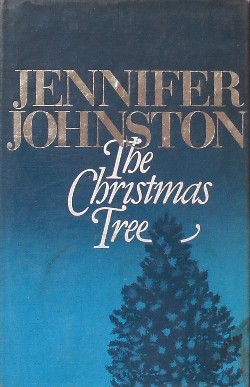The Christmas Tree (novel)
The Christmas Tree is a novel written by Jennifer Johnston, an acclaimed Irish author known for her exploration of family dynamics, memory, and the complexities of the human condition. First published in 1981, the novel is a poignant narrative that delves into themes of love, loss, and the inevitable passage of time, all framed around the central symbol of a Christmas tree.
Plot Summary[edit | edit source]
The story unfolds through the eyes of Constance Keating, a woman in her early forties who, after living in London for many years, returns to her family home in Dublin to spend her final days. Diagnosed with a terminal illness, Constance reflects on her past, her strained relationship with her family, and her unfulfilled aspirations. The Christmas tree, a recurring motif in the novel, symbolizes both hope and the transient nature of life. As Constance decorates the tree, she reminisces about her life, her brief love affair in London, and the daughter born out of that relationship, whom she has had to leave behind.
Themes[edit | edit source]
The novel is rich in themes that are central to human experience. The Christmas tree itself is a powerful symbol of life, festivity, and also mortality, highlighting the cyclical nature of existence. Themes of family dynamics, alienation, and the search for identity are explored through Constance's interactions with her family and her reflections on her past. The narrative also touches upon the theme of motherhood, particularly the societal expectations placed on women and the sacrifices they make.
Reception[edit | edit source]
Upon its release, The Christmas Tree received critical acclaim for its elegant prose, emotional depth, and the subtlety with which it handled complex themes. Johnston's portrayal of Constance as a nuanced, resilient character facing her mortality with dignity and a sense of peace was particularly lauded. The novel is considered a significant work in Johnston's oeuvre, showcasing her skill at crafting intimate, character-driven stories that resonate with universal truths.
Legacy[edit | edit source]
The Christmas Tree has been recognized not only for its literary merit but also for its thoughtful exploration of themes that are both personal and universal. It has been studied in various academic settings for its narrative technique, thematic depth, and Johnston's ability to weave complex emotions into the fabric of her characters' lives. The novel remains a poignant reflection on life, love, and the passage of time, enduring as a testament to Johnston's talent and sensitivity as a writer.
Search WikiMD
Ad.Tired of being Overweight? Try W8MD's physician weight loss program.
Semaglutide (Ozempic / Wegovy and Tirzepatide (Mounjaro / Zepbound) available.
Advertise on WikiMD
|
WikiMD's Wellness Encyclopedia |
| Let Food Be Thy Medicine Medicine Thy Food - Hippocrates |
Translate this page: - East Asian
中文,
日本,
한국어,
South Asian
हिन्दी,
தமிழ்,
తెలుగు,
Urdu,
ಕನ್ನಡ,
Southeast Asian
Indonesian,
Vietnamese,
Thai,
မြန်မာဘာသာ,
বাংলা
European
español,
Deutsch,
français,
Greek,
português do Brasil,
polski,
română,
русский,
Nederlands,
norsk,
svenska,
suomi,
Italian
Middle Eastern & African
عربى,
Turkish,
Persian,
Hebrew,
Afrikaans,
isiZulu,
Kiswahili,
Other
Bulgarian,
Hungarian,
Czech,
Swedish,
മലയാളം,
मराठी,
ਪੰਜਾਬੀ,
ગુજરાતી,
Portuguese,
Ukrainian
Medical Disclaimer: WikiMD is not a substitute for professional medical advice. The information on WikiMD is provided as an information resource only, may be incorrect, outdated or misleading, and is not to be used or relied on for any diagnostic or treatment purposes. Please consult your health care provider before making any healthcare decisions or for guidance about a specific medical condition. WikiMD expressly disclaims responsibility, and shall have no liability, for any damages, loss, injury, or liability whatsoever suffered as a result of your reliance on the information contained in this site. By visiting this site you agree to the foregoing terms and conditions, which may from time to time be changed or supplemented by WikiMD. If you do not agree to the foregoing terms and conditions, you should not enter or use this site. See full disclaimer.
Credits:Most images are courtesy of Wikimedia commons, and templates Wikipedia, licensed under CC BY SA or similar.
Contributors: Prab R. Tumpati, MD

